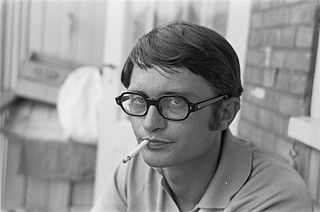
Remco Campert was a Dutch author, poet and columnist.

George Wilhelm Kettmann or George Kettmann Jr. was a Dutch poet, writer, journalist, and publisher who promoted Nazism in the Netherlands. With his wife, he founded the best known Dutch Nazi publishing house, De Amsterdamsche Keurkamer. Until 1941 he was editor in chief of Volk en Vaderland, the weekly journal of the National Socialist Movement in the Netherlands (NSB), the movement of Anton Mussert.

Cornelis de Bie was a Flemish rederijker, poet, jurist and minor politician from Lier. He is the author of about 64 works, mostly comedies. He is known internationally today for his biographical sketches of Flemish and Dutch painters in his Het Gulden Cabinet der Edel Vry Schilderconst, first printed in 1662.
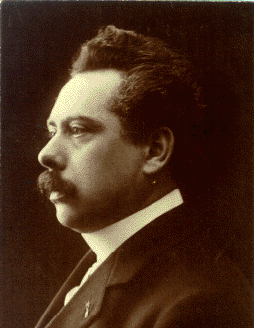
Maurits Sabbe, born Maurice Charles Marie Guillaume Sabbe, was a Flemish man of letters and educator who became curator of the Plantin-Moretus Museum in Antwerp.
Willem Maurits Roggeman is a Belgian poet, novelist and art critic.

Ferdinand Van der Auwera, pseudonym Fernand Auwera was a Belgian writer. His fragile health during his youth and its impact on his life (solitude), had an effect on his first literary work.
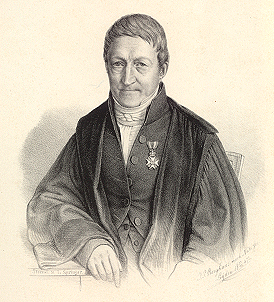
Matthijs Siegenbeek was a Dutch academic. From 1797 to 1847 he was the first professor of the Dutch language at the University of Leiden. From 1803 he was the member, then secretary, of the head-office of that university's literary faculty. Initially he was a Mennonite voorganger in Dokkum.
Willem Philippe Maria "Wim" Zaal was a Dutch journalist, essayist, translator and literary critic. He was literary editor of Elsevier for years.
The Huizinga Lecture is an annual lecture in the Netherlands about a subject in the domains of cultural history or philosophy. The lecture is in honour of Johan Huizinga, a distinguished Dutch historian (1872–1945) who worked in the first half of the 20th century. The Lecture is organized by nationwide daily general newspaper NRC Handelsblad, the Faculty of Humanities of Leiden University, and the Maatschappij der Nederlandse Letterkunde. Attendance at the lecture was free of charge for subscribers to NRC Handelsblad, members of the Faculty of Humanities, and members of the Maatschappij der Nederlandse Letterkunde until 2010. From 2011 onwards tickets have to be bought. The lecture is held alternately by a Dutch and a non-Dutch intellectual.

Robert Nieuwenhuys was a Dutch writer of Indo descent. The son of a 'Totok' Dutchman and an Indo-European mother, he and his younger brother Roelof, grew up in Batavia, where his father was the managing director of the renowned Hotel des Indes.

Abraham de Vries was a Dutch Mennonite minister, author on literature and member of several societies.
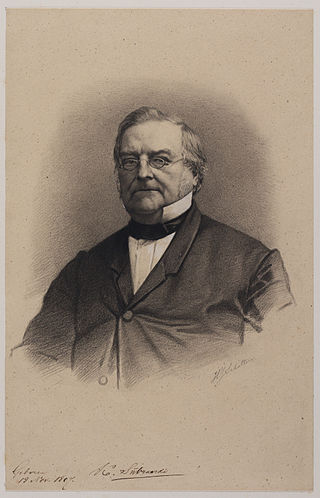
Klaas Sybrandi, also spelled as Sijbrandi, was a Dutch Mennonite minister, author, translator and involved with several societies and foundations.
Carel Peeters is one of the leading Dutch literary critics and since 1973 a writer and editor at Vrij Nederland.
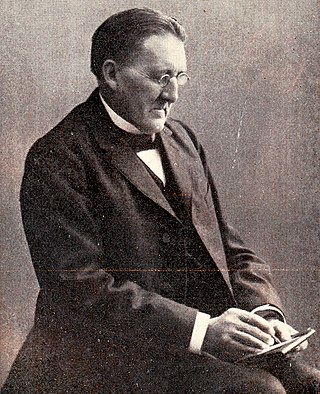
Jacob Cornelis van Slee (1841–1929) was a Dutch Reformed clergyman and scholar. He was the author of a study of the Windesheim Congregation, De kloostervereeniging van Windesheim, and between 1875 and 1900 contributed articles on theologians to the Allgemeine Deutsche Biographie.

Barbara Ogier was a Flemish playwright of De Olijftak, a chamber of rhetoric in Antwerp. Her motto was "Deugd voeght yder".
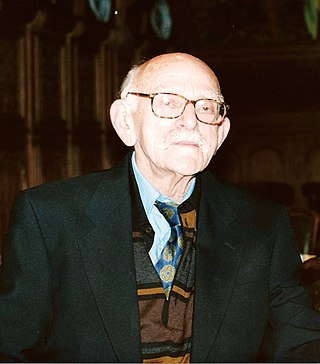
Hugo Pos was a Surinamese judge, writer, and poet.
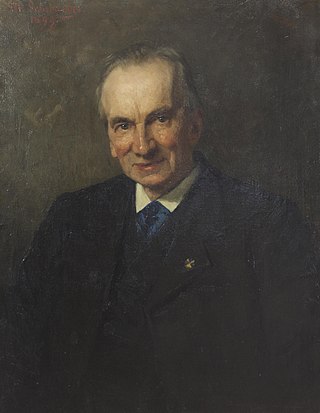
Frederik Willem van Eeden was a Dutch amateur botanist. He was the father of the writer Frederik van Eeden.
August Albert Keersmaekers (1920–2009) was a Belgian literary scholar, with a particular interest in Dutch-language literature of the 17th through to early 20th centuries, and the literature of the Kempen. He identified a number of poems by Gerbrand Bredero, which had been assumed to reflect incidents in the poet's own life, as translations of French originals, fundamentally changing the understanding of Bredero's character and literary career.

Frans Jozef Peter van den Branden was a Belgian playwright, art historian, civil servant, educator and archivist. He wrote in the Dutch language. He is now known mainly for his art historical works, which mainly dealt with the history of the Antwerp school of artists and Antwerp poets and dramatists linked to the local chambers of rhetoric. He also co-authored the Biographisch woordenboek der Noord- en Zuidnederlandsche letterkunde with Johannes Godefridus Frederiks, a biographical dictionary of writers from the Netherlands and Belgium and their predecessor states.
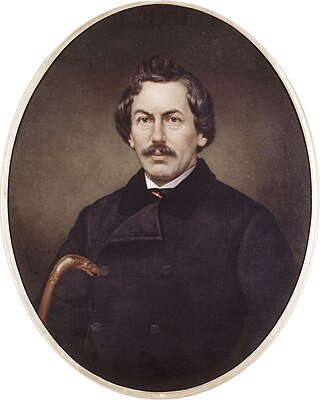
Alexander Willem Maurits Carel Ver Huell, also: Verhuell or VerHuell was a Dutch artist and writer.